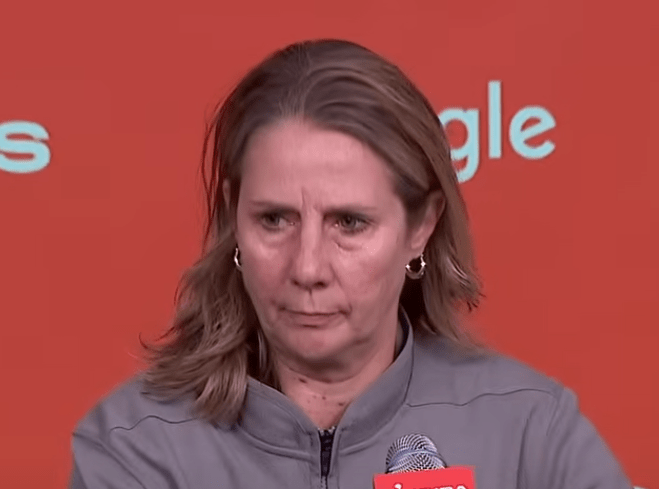Not only a reward for longevity, Cheryl Reeve’s ascent to one of the highest-paid coaching positions in women’s professional basketball is the product of an exceptionally successful fusion of championship lineage, leadership consistency, and strategic acumen. Reeve, who currently makes about $700,000 a year, is a key player in the Minnesota Lynx organization and the larger movement for more equitable compensation in women’s sports.

Reeve led the Lynx to four WNBA titles in six years by utilizing cutting-edge coaching techniques and creating a strong team culture. This accomplishment has significantly increased her pay over time. Her pay, which had previously been roughly $400,000, increased steadily during the 2010s. Her total yearly take-home pay can now approach $900,000 in peak years, since performance bonuses for championship victories and playoff appearances are said to add up to an additional $200,000 per season. Other franchises are starting to follow this model, which has a clear, merit-driven trajectory.
Cheryl Reeve – Professional Profile and Salary Overview
| Attribute | Detail |
|---|---|
| Full Name | Cheryl Reeve |
| Date of Birth | September 20, 1966 |
| Age | 59 (as of 2025) |
| Birthplace | Gloucester County, New Jersey |
| Education | La Salle University |
| Role | Head Coach & President, Minnesota Lynx |
| National Team | USA Basketball Women’s Head Coach (since 2021) |
| Estimated Salary (2025) | $700,000 annually |
| Net Worth Estimate | $4.5 million to $10 million |
| Major Wins | 4× WNBA Champion, 4× WNBA Coach of the Year |
| Family | Married to Carley Knox; one son, Oliver |
| Official Profile |
Reeve’s salary is remarkably comparable to that of male NBA assistant coaches in a coaching industry that is still striving to close historical disparities, but she is still paid less than Phoenix Mercury head coach Nate Tibbetts, whose 2023 contract reached the $1 million mark. Tibbetts had no prior WNBA head coaching experience, despite coming from the NBA ranks. Reeve, on the other hand, has a history of monumental victories, which attests to her extraordinary tactical depth and resilience.
Reeve increased her power outside of league lines by forming strategic alliances, like as when she led the U.S. women’s national team at the same time. Under her leadership, Team USA won gold in the 2024 Summer Olympics in Paris and the 2022 FIBA World Cup. Her career visibility has increased dramatically as a result of this dual role, positioning her as a global leader in coaching excellence.
Due to changes in cultural focus and the increase of media rights, women’s basketball has accelerated over the last 10 years. Reeve’s name, which is frequently linked to achievement, has proven especially advantageous for the WNBA’s branding initiatives. These days, her image is regularly included in league ads, coach biographies sponsored by Nike, and speeches about equality in sports. Her commercial value as well as her voice are amplified by each of these platforms.
Reeve’s résumé is a textbook example of long-term achievement. Having coached more than 495 regular-season games and 65 playoff games, she continues to have the highest playoff winning % in league history. In addition, she has coached four All-Star games, which enhances her reputation as a reliable leader. She is still the only WNBA coach with more than 40 playoff victories, which solidifies her status as a historically great coach. She is presently second in all-time regular season coaching victories.
The debate about compensation parity in sports has heated up in recent years. WNBA earnings for players and coaches are still relatively low, despite NBA coaches regularly negotiating multi-million-dollar contracts. Reeve’s career influence and pay trajectory, however, are acting as a stabilizing force for significant change. Her success—financial, strategic, and cultural—has turned into a yardstick for determining how women’s sports worth and compensation are determined.
Reeve’s story is also remarkably grounded in her family life. The duo, who are married to Carley Knox, a prominent Lynx executive, have established a foundation that is consistent with their principles on both a personal and professional level. Together, they have mastered the art of managing the Lynx franchise with great efficiency, combining a progressive social agenda with competitive discipline. Reeve has said that their son, Oliver, is the lifeblood of her life away from the court and a crucial emotional anchor in the midst of her demanding profession.
Reeve spoke even more outspokenly about structural injustices in sports during the outbreak. She supported athletes fighting for racial justice, spoke out against media blackouts, and pushed for better maternity laws. She has used her voice to draw attention to the expanding relationship between activism and sports, a movement that is constantly changing the ideas behind sports administration.
The need for seasoned executives like Reeve will probably drive up compensation even more in the upcoming years as expansion clubs join the WNBA and viewership figures rise. It is plausible to anticipate that head coaching compensation will surpass $1 million for more than a handful, given the league’s increasing valuation. Through incentives and supplementary responsibilities, Reeve is already getting closer to that tier, marking the beginning of a larger change.
Through the incorporation of social advocacy into her professional identity, Reeve has established herself as a thought leader rather than merely a tactician. In addition to locker rooms, her voice is heard in media negotiations, equity summits, and policy talks. It is becoming more and more obvious that Reeve’s pay reflects more than just victories—it shows vision, value, and trailblazing leadership as the league’s infrastructure adjusts to new economic realities.
